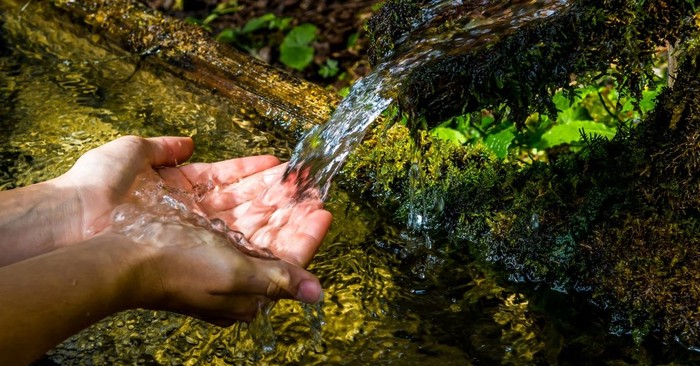
He is, after all, the architect behind every living thing. He is more concerned about the longevity and preservation of His creation than the most spirited environmentalist.
We are living in harsh times with a flurry of environmental threats nipping at our heels. There's global warming, deforestation, air & water pollution, soil degradation, and wildlife extinction among other challenges. In a bid to take better care of the environment, hordes of people across the globe have opted to go green. This begs the question, does God go green? But first things first - what does "going green" mean?
What is Going Green?
Going green refers to the act of embracing practices and pursuing knowledge that will enable one to make more environmentally friendly and ecologically responsible decisions. For instance, a person who has gone green will be keen to turn off appliances while not in use, reuse and recycle items, tap rainwater, use organic products, and buy a fuel-efficient car among other environmentally friendly practices.
Does God "Go Green"?
The fact is that no human being is more concerned about the preservation and proper use of creation than God. He is, after all, the architect behind every living thing. He is more concerned about the longevity and preservation of His creation than the most spirited environmentalist. During creation, He looked upon everything He had made and declared that it was good (Genesis 1:31). He also commanded every living thing to reproduce according to its kind (Genesis 1:24). God created good things and wanted them to reproduce and be in existence for a jolly long time.
God’s protective attitude towards creation is imprinted in all His dealings with it. Perhaps God may never need to go green because longevity and preservation are His blueprints where creation is concerned. However, here are five ways in which we see God seemingly “going green”:
1. God Abhors Waste
“So when they were filled, He said to His disciples, ‘Gather up the fragments that remain, so that nothing is lost.’” (John 6:12,)
God wants us to treasure the resources He has entrusted to us. After feeding the five-thousand men by multiplying five loaves and two fish, Jesus did not disregard the leftovers. He instructed the disciples to gather up the remains so that nothing would be lost. Being the Son of God, endowed with miracle-working power, Jesus could have glossed over the remains. After all, He could perform another miracle on a whim. But He instructed the disciples not to waste anything.
In John 17, we find Jesus praying for His disciples before His betrayal and arrest. In His prayer, He points out that He had kept those the Father had given Him in His name. He had lost none except the son of perdition so that scripture would be fulfilled (John 17:12). As the Good Shepherd, we see Jesus leaving the ninety-nine sheep in search of the one that trails off (Mathew 18:12). He does all this to ensure that what He has received from the father is preserved.
This careful attitude is what God requires of us as we handle what He has entrusted to us. We need to preserve His creation and steer clear of wastage and recklessness.
2. God Demands Fruitfulness from His Creation
“Then God blessed them, and God said to them, ‘Be fruitful and multiply; fill the earth and subdue it; have dominion over the fish of the sea, over the birds of the air, and over every living thing that moves on the earth'” (Genesis 1:28, NKJV).
God loves to see His creation multiplying and bursting forth with fruit. He detests unfruitfulness so much that Jesus cursed the fig tree when he found nothing to eat on it (Mathew 11:14). As such, He requires us to not only be good stewards of the resources entrusted to us but to multiply them. In the parable of the barren fig tree, we see the caretaker asking for time to dig around it and fertilize it to see if it would bear fruit.
“But he answered and said to him, ‘Sir, let it alone this year also until I dig around it and fertilize it. And if it bears fruit, well. But if not, after that you can cut it down’” (Luke 13:8-9, NKJV).
Throughout the scriptures, God doesn't hesitate to cut off unfruitful people/things. Jesus said that He takes away every branch in Him that does not bear fruit (John 15:2). As stewards and caretakers of God’s creation, we need to perpetuate life and not snuff it out. We need to seek growth and multiplication in the resources that God has entrusted to us. We must be wary of things like the pollution of water bodies that throw the aquatic ecosystem into disarray.
It's important to note that although God asked man to have dominion and subdue the earth, that was no license for man to wreak havoc on it. Man was meant to tend and keep the earth (Gen 2:15) in a bid to achieve fruitfulness. Furthermore, the Bible says that a good man leaves an inheritance to his children’s children (Proverbs 13:22). One can only leave an inheritance for their grandchildren if they multiply the resources entrusted to them.
3. God asks Us to Do Everything for His Glory
“Therefore, whether you eat or drink, or whatever you do, do all to the glory of God” (1 Corinthians 10:31, NKJV).
“And whatever you do in word or deed, do all in the name of the Lord Jesus, giving thanks to God the Father through Him” (Colossians 3:17, NKJV).
Oftentimes we are keen on pleasing God by steering clear of the sins that we perceive as ‘big’ in the sight of God. We make sure not to lie, steal, kill, use the Lord's name in vain, etc. But. We have no problem walking out of a room and leaving the lights on. We leave the taps running in our hotel rooms without batting an eye. We assume that some of our behaviors matter to God while others are of no effect.
Nothing could be further from the truth. God is concerned about the nitty-gritty aspects of our lives. He asks that we do everything for the glory of His name, whether we eat or drink. This can only mean that God gets irked by oil spills, littering, pollution, and deforestation, among other harmful practices. When not sure which option to take where preserving the environment is concerned, consider whether what you are about to do will bring glory to God or not. Remember that God’s way is perfect (2 Samuel 22:31).
4. God Sustains the Universe
“You who laid the foundations of the earth, so that it should not be moved for ever” (Psalm 104:5, NKJV).
“He appointed the moon for seasons, the sun knows it's going down” (Psalm 104:19, NKJV).
The universe is an intricate masterpiece woven together by God. It consists of the earth, sun, moon, other planets, galaxies, and stars—to mention but a few. Even scientists cannot fathom the meticulous manner in which God fashioned it. It's a puzzle that no human mind can unravel. In Job 38-39, we see God revealing His omnipotence to Job. He takes Job on a mind-blowing discourse on the intricacies of His creation which leaves Job dumbfounded:
“Where were you when I laid the foundations of the earth? Tell Me, if you have understanding. Who determined its measurements? Surely you know! Or who stretched the line upon it? To what were its foundations fastened? Or who laid its cornerstone, When the morning stars sang together, And all the sons of God shouted for joy?” (Job 38:4-7, NKJV).
God not only fashioned the universe in a mind-blowing way, but He also sustains it through His power. We will never rise in the morning only to find that the sun won't peek out or that the clouds have plummeted to the ground. God preserves and takes care of what He created. Seeing that He is omnipotent, He could allow the universe to fester away and create a new one if He so wished. But no. He values and sustains the work of His hands.
5. God Nurtures His Creation
“These all wait for You, that You may give them their food in due season” (Psalm 104:27, NKJV).
In Psalm 104, we see David exhorting God for His providence and care towards His creation. David observes that God sends springs to the valleys and hills to quench the wild donkeys and the beast of the fields. He also gives the birds a home among branches and causes grass to grow for cattle and vegetation for the service of man. He gives the stork a home in the fir trees, the wild goats in the high hills, and cliffs for the rock badgers. He also made darkness and night in which the beasts of the fields creep about in search of food.
In essence, God ensures that everything He made has food and a home. He provides even for the tiniest microscopic organism. Yes, even the bacteria in a human being’s gut is provided by God. This careful and thoughtful nurturing is another sign that “going green” is imprinted in all of God’s dealings with creation.
Photo Credit: ©GettyImages/grafxart8888








